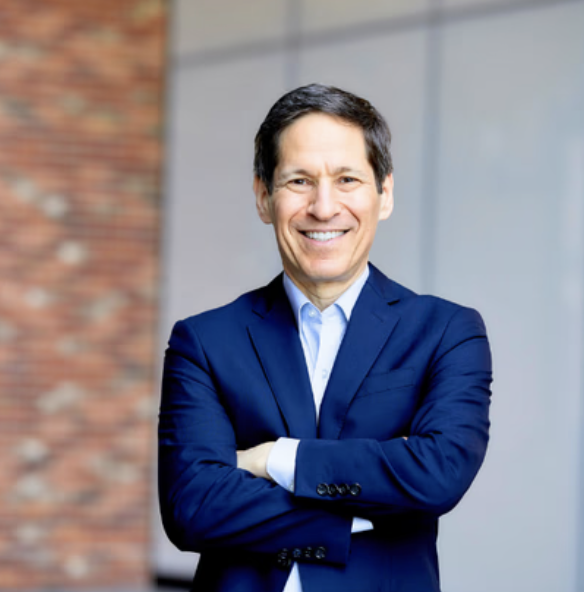“Show Success, Don’t Just Warn About Failure”: A Conversation with Dr. Tom Frieden on the Future of Public Health
Few people have seen public health from as many angles as Tom Frieden, MD, MPH—the president and CEO of Resolve to Save Lives, a nonprofit global health organization, and a former director of the CDC and New York City’s health department. His new book, The Formula for Better Health: How to Save Millions of Lives—Including Your Own, distills decades of lessons into a simple, powerful framework: see → believe → create.
That three-part formula—see the problem, believe change is possible, and create the conditions for improvement—is both a professional and personal guide. It’s also a reminder that progress in public health depends not just on data, but on communication: how we help people understand what’s at stake, believe that change is achievable, and create collective action.
I asked Dr. Frieden about the role of storytelling in building public trust, how partisan politics complicates public health, and what gives him hope for the future.
“Stories are how people make sense of the world.”
Your book is filled with stories. It seems like it’s easier for people in public health to talk about the need for storytelling than it is to actually find and craft good stories. What makes a compelling health story?
Stories are how people make sense of the world. Facts tell you what’s happening; stories tell you why it matters. It’s been said that logic rarely or never wins arguments, but stories often do.
A compelling health story has people at its center—the mother who can’t afford her medication, the nurse who catches a problem early and saves a life, the policymaker who listens to data and changes course. The best stories are memorable, with small details that help them land well.
At Resolve to Save Lives, we publish a report, Epidemics That Didn’t Happen, highlighting the stories of real health workers and communities who stopped outbreaks before they spiraled. It’s so important in public health to show success, not just warn about failure.
“Listen first.”
What advice do you have for health communicators who want to be better storytellers?
Listen first. Listen to patients, communities, and health workers on the front lines. When we find those stories and tell them truthfully and clearly, people remember. They care. And that’s how change begins.
“When ideology replaces evidence-based action”
Many people are encouraged to see health coalitions forming across regions. But do you worry that we’re entering an era where people’s health will be dictated by their governor’s political affiliation?
The problem isn’t that politics and public health intersect—they always have, and they always will. The problem is when partisanship drives public health decisions, and when ideology replaces evidence-based action.
At the end of the day, people want to be healthy. They want accurate information and the ability to make choices that help them live longer, healthier lives. What worries me is when partisan influence limits those choices.
Take the current COVID vaccine recommendations. New actions by the administration have made it less likely that people under 65 will get vaccinated. A virus doesn’t care about political affiliation. Diseases don’t respect borders. Public health decisions should be grounded in data, not ideology.
The job of policymakers and health leaders is to make it easier for people to protect themselves and their communities—so that if people just go with the flow, they won’t end up with preventable illness, injury, disability, or death.
“Facts are stubborn things.”
You’ve spoken out against recent attacks on science and truth, and the dangerous messages coming from the highest levels of government. What gives you hope for the future of public health?
We can’t understate the challenges we face. The politicization of public health has dangerous consequences. We’re witnessing the dismantling of the CDC and the spread of debunked, deadly disinformation—especially around vaccines.
But we can be strategic. We have better tools than at any time in human history—data, technology, and communications platforms that can be used for good. Not everything we try will work. But facts are stubborn things. Even when they’re denied or distorted, they remain facts. That’s why persistence matters.
Fundamentally, there are great people working on the front lines—nurses, doctors, outreach workers, and social workers who know what’s really happening, who care deeply, and who show up every day. The public wants to be healthier. Parents want healthier lives for their kids. Communities want to thrive.
That’s what gives me hope: the people, the facts, and the reality that even when progress is slow, it’s possible.
(interview edited for length and clarity)

